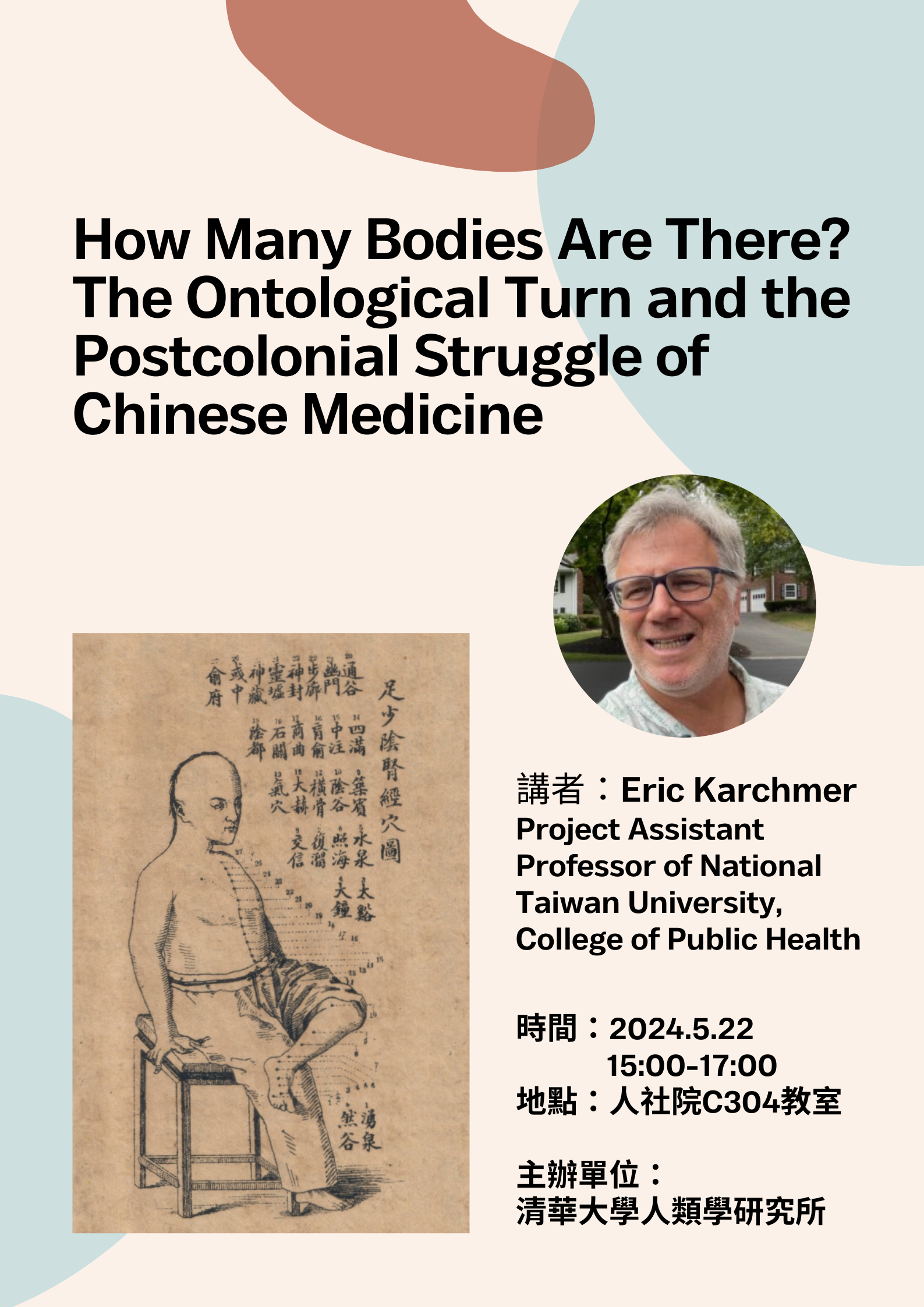2024.5.22 How Many Bodies Are There? The Ontological Turn and the Postcolonial Struggle of Chinese Medicine
講題:How Many Bodies Are There? The Ontological Turn and the Postcolonial Struggle of Chinese Medicine
講者:Eric Karchmer (Project Assistant Professor of National Taiwan University, College of Public Health)
時間:2024/5/22(三)15:00-17:00,
地點:清華大學人社院C304教室
主辦單位:清華大學人類學研究所
摘要:What are the prospects for nurturing traditional knowledges and related practices In an increasingly globalized world? Proponents of the “ontological turn” in anthropology have argued that it is only through decolonizing social theory and protecting the political rights of Indigenous Peoples that it will be possible to preserve non-Western systems of knowledge and the lifeworlds of Indigenous societies. But in article entitled, “How Many Worlds Are There,” Paul Nadasdy has argued that the ontological turn has gone too far and relies on narrowly selected ethnographic observations that ignores the heterogenous practices of most Indigenous Peoples. He asserts that Indigenous communities exist in a single, indeterminate universe, not a “pluriverse” of incommensurate lifeworlds. In this talk, I will reflect on this debate through an examination of the postcolonial challenges confronting the contemporary practice of Chinese medicine in China, particularly as it relates to questions of the body. Much like the anthropological advocates for the ontological turn, doctors of Chinese medicine insist that the body in Chinese medicine must be understood on its own terms and recognized as true. At the same time, contemporary doctors of Chinese medicine are well trained in biomedicine and incorporate numerous aspects of this medical system into their practice. By tracing the historical evolution of Chinese medicine through two famous orthopedic doctors, I will show that contemporary Chinese medicine is defined by two key characteristics: one, postcolonial power inequalities which devalue the epistemological authority of Chinese medicine, and two, the increasing hybridization of traditional Chinese medicine with biomedicine in clinical practice. It is the author’s contention that greater attention to the questions of power inequalities and hybridity will advance the important academic issues raised by the ontological turn.

